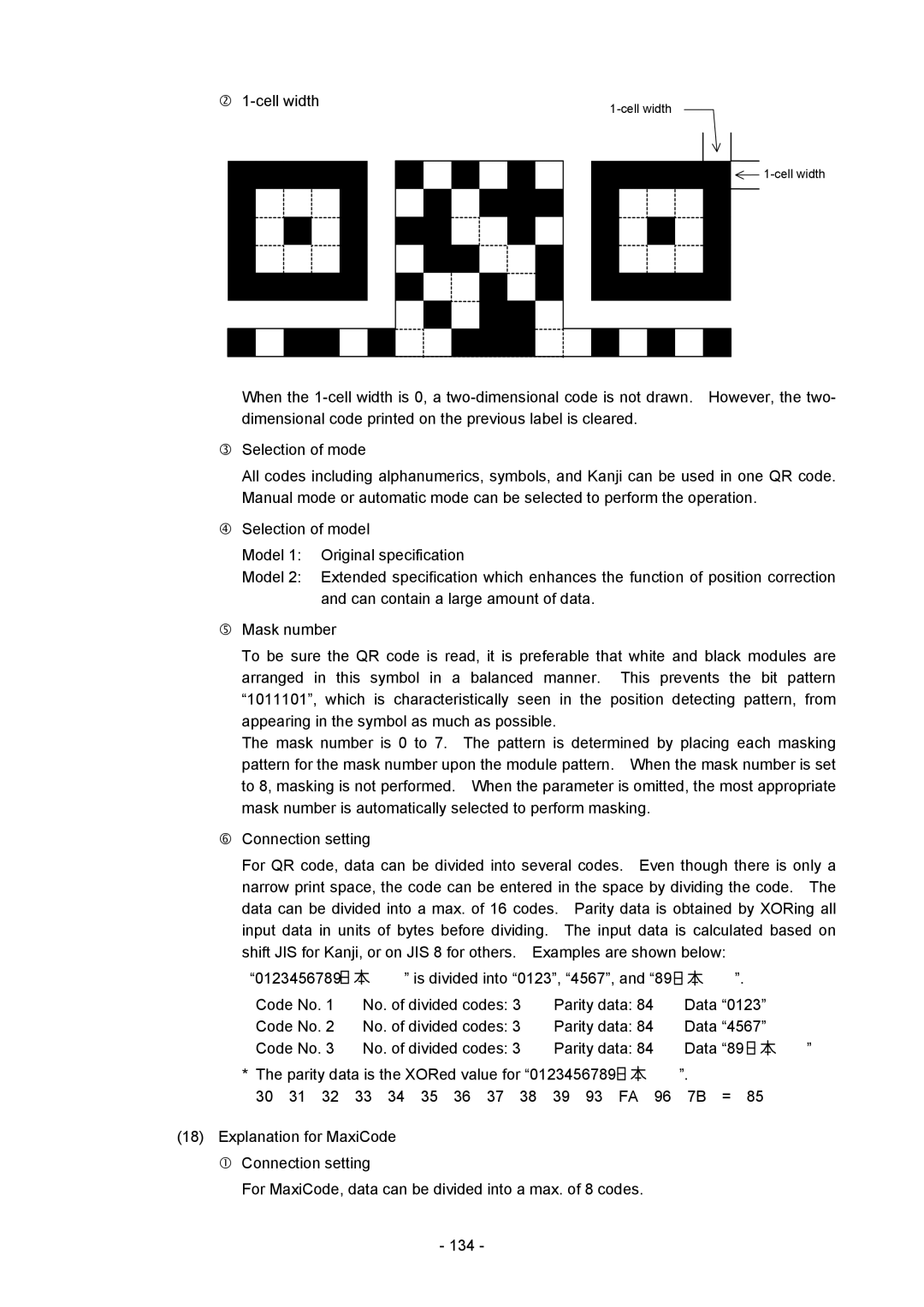
d1-cell width
When the
eSelection of mode
All codes including alphanumerics, symbols, and Kanji can be used in one QR code. Manual mode or automatic mode can be selected to perform the operation.
fSelection of model
Model 1: Original specification
Model 2: Extended specification which enhances the function of position correction and can contain a large amount of data.
gMask number
To be sure the QR code is read, it is preferable that white and black modules are arranged in this symbol in a balanced manner. This prevents the bit pattern “1011101”, which is characteristically seen in the position detecting pattern, from appearing in the symbol as much as possible.
The mask number is 0 to 7. The pattern is determined by placing each masking pattern for the mask number upon the module pattern. When the mask number is set to 8, masking is not performed. When the parameter is omitted, the most appropriate mask number is automatically selected to perform masking.
hConnection setting
For QR code, data can be divided into several codes. Even though there is only a narrow print space, the code can be entered in the space by dividing the code. The data can be divided into a max. of 16 codes. Parity data is obtained by XORing all input data in units of bytes before dividing. The input data is calculated based on shift JIS for Kanji, or on JIS 8 for others. Examples are shown below:
“0123456789 | ” is divided into “0123”, “4567”, and “89 | ”. |
| |
Code No. 1 | No. of divided codes: 3 | Parity data: 84 | Data “0123” | |
Code No. 2 | No. of divided codes: 3 | Parity data: 84 | Data “4567” | |
Code No. 3 | No. of divided codes: 3 | Parity data: 84 | Data “89 | ” |
* The parity data is the XORed value for “0123456789 | ”. |
| ||
30 31 32 | 33 34 35 36 37 38 | 39 93 FA 96 | 7B = | 85 |
(18)Explanation for MaxiCode c Connection setting
For MaxiCode, data can be divided into a max. of 8 codes.
- 134 -
